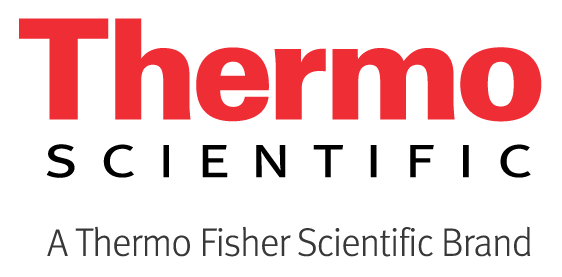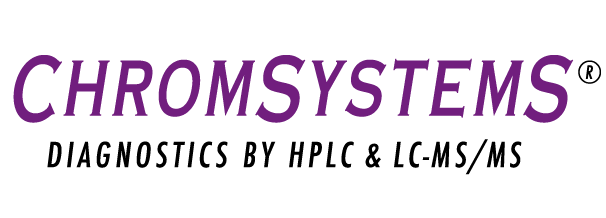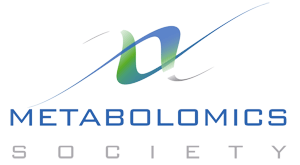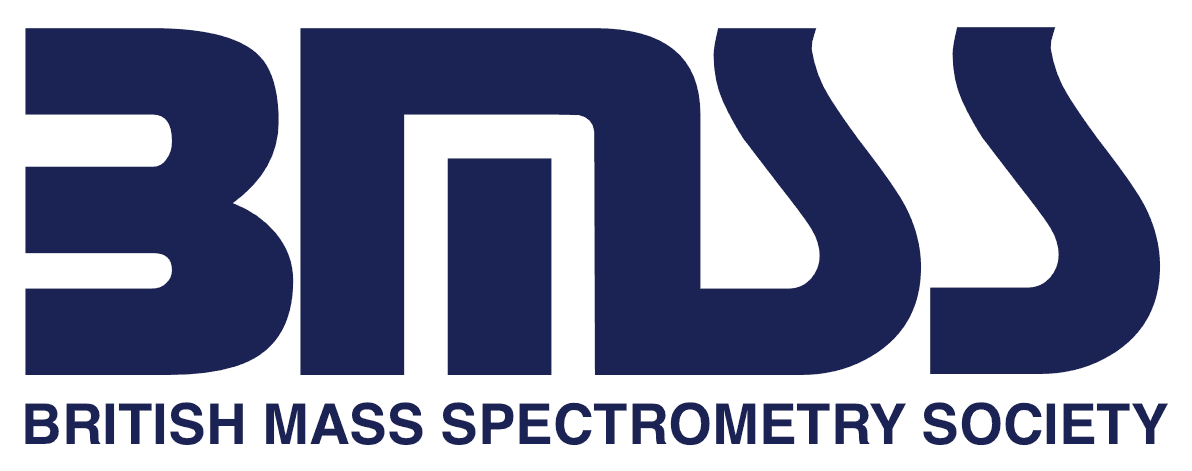MSACL 2015 EUSalzburg, Austria: Sept 8-11 |
Details
MSACL EU
|
Short Courses
MSACL hosts a diverse offering of Short Courses. These will be posted soon following instructor confirmation.
Short Courses cover 1 to 2 days, depending on the course, for the first two days of the congress (Sept 8-9).
| Course Number | Tuesday | Wednesday |
| LC-MS | ||
| LC-MSMS 101 | Getting Started with Quantitative LC-MS/MS in the Diagnostic Laboratory Judy Stone, PhD & Grace van der Gugten | |
| LC-MSMS 202 | Practical LC-MS Maintenance and Troubleshooting (Tuesday) Erik J. Soderblom, PhD, Christopher Shuford, PhD, J. Will Thompson, PhD Registration for either day of this course (Tuesday or Wednesday) allows you to attend both days. | |
| LC-MSMS 202 | Practical LC-MS Maintenance and Troubleshooting (Wednesday) Erik J. Soderblom, PhD, Christopher Shuford, PhD, J. Will Thompson, PhD Registration for either day of this course (Tuesday or Wednesday) allows you to attend both days. | |
| LC-MSMS 301 | Development and Validation of Quantitative LC-MS/MS Assays for Use in Clinical Diagnostics Russell Grant, PhD & Brian Rappold | |
| Microbiology / Proteomics | ||
| Microbiology / Proteomics 102 | Detection Of Pathogens By Whole-Cell MALDI-TOF MS And Advanced Proteomics Approaches Jean-Armengaud, PhD, Oliver Pible & Julia Chamot-Rooke, PhD | |
| Statistics | ||
| Statistics 101 | Breaking up with Excel: A Newbie's Introduction to the R Statistical Programming Language Daniel Holmes, MD & Stephen Master, MD PhD | |
*Notes:
- Two day courses are NOT the same courses replicated on two separate days. They are single courses that span two days.
- Unless otherwise noted, courses are from 8:00AM - 4:30PM.
LC-MS |
Getting Started with Quantitative LC-MS/MS in the Diagnostic Laboratory
Judy Stone, PhD & Grace van der Gugten
Level: 1-2 (Beginner - Intermediate)
Length: 2 days (Tuesday - Wednesday)
Practical LC-MS Maintenance and Troubleshooting (Tuesday)
Erik J. Soderblom, PhD, Christopher Shuford, PhD, J. Will Thompson, PhD
Level: 2 (Intermediate)
Length: 1 Day (Tuesday)Notes: Registration for either day of this course (Tuesday or Wednesday) allows you to attend both days.
Practical LC-MS Maintenance and Troubleshooting (Wednesday)
Erik J. Soderblom, PhD, Christopher Shuford, PhD, J. Will Thompson, PhD
Level: 2 (Intermediate)
Length: 1 Day (Wednesday)Notes: Registration for either day of this course (Tuesday or Wednesday) allows you to attend both days.
Development and Validation of Quantitative LC-MS/MS Assays for Use in Clinical Diagnostics
Russell Grant, PhD & Brian Rappold
Level: 3 (Advanced)
Length: 2 Days (Tuesday - Wednesday)
Microbiology / Proteomics |
Detection Of Pathogens By Whole-Cell MALDI-TOF MS And Advanced Proteomics Approaches
Jean-Armengaud, PhD, Oliver Pible & Julia Chamot-Rooke, PhD
Level: 1-2 (Beginner - Intermediate)
Length: 1 Day (Wednesday)
Statistics |
Breaking up with Excel: A Newbie's Introduction to the R Statistical Programming Language
Daniel Holmes, MD
&
Stephen Master, MD PhD
Level: 1-2 (Beginner - Intermediate)
Length: 2 Days (Tuesday - Wednesday)
Getting Started with Quantitative LC-MS/MS in the Diagnostic Laboratory
| Instructor(s): | Judy Stone, PhD & Grace van der Gugten |
| Level: | 1-2 (Beginner - Intermediate) |
| Length: | 2 days (Tuesday - Wednesday) |
Prerequisites:
Overview: Is your laboratory under pressure to purchase an LC-tandem MS or is the ROI you wrote last year haunting you now? This short course is designed for attendees implementing quantitative LC-tandem MS for patient testing who have laboratory medicine experience but no mass spectrometry training - CLS bench analysts, supervisors, R&D scientists, and laboratory directors. Theoretical concepts necessary for a robust implementation of clinical mass spectrometry will be presented – but the emphasis is on practical recommendations for:
- LC-MS/MS system purchasing
- site preparation and installation
- defining preliminary MSMS and LC parameters for your first method
- selecting and optimizing sample preparation for your first method
- choosing internal standards, solvents, and water, making reagents and calibrators
- adjusting sample preparation, LC and MSMS parameters to achieve the desired assay performance
- establishing data analysis & review criteria and an interface to the LIS
- pre-validation stress testing and method validation
- preventative maintenance and troubleshooting
- maintaining quality in production.
Our goal is to present just enough theory so you can report high quality results, while opening a window to the depth and complexity of clinical mass spectrometry such that your appetite is whetted to learn more.
Previous exposure to the principles of clinical method validation, either didactic or practical, is assumed. A glossary of common LC-MSMS terms/acronyms, and diagrams delineating basic LC and MSMS instrument components and functions will be emailed to attendees a week prior to the beginning of the course. This material will also be addressed at the beginning of the course, but the initial learning curve can be steep and review prior to the course will be beneficial if you have absolutely no previous exposure with LC-MSMS.
| Registration Rates for This Short Course | EarlyBird | Regular | Late |
| Student / Post-Doc (Trainee) | €110 | €132 | €165 |
| Academic / Non-Profit | €330 | €396 | €495 |
| Commercial / Industry | €550 | €660 | €825 |
Practical LC-MS Maintenance and Troubleshooting (Tuesday)
| Instructor(s): | Erik J. Soderblom, PhD, Christopher Shuford, PhD, J. Will Thompson, PhD |
| Level: | 2 (Intermediate) |
| Length: | 1 Day (Tuesday) |
| Notes: | Registration for either day of this course (Tuesday or Wednesday) allows you to attend both days. |
Prerequisites: Experience with LC-MS systems.
Overview: The general goal of the course is to enable practitioners of LC-MS/MS in the clinical laboratory to quickly recognize and diagnose specific problems with instrumentation, in order to decrease downtime and cost of repairs. The course includes ‘best practices’ for instrumentation installation, upkeep and maintenance, practical troubleshooting workflows for LC and MS, and will use problem sessions to reinforce skillsets. Although the course uses examples from specific instrumentation for demonstration, the content is geared to be vendor-neutral and applicable to all LC-MS systems. Additionally, we will provide an opportunity to have instrumentation troubleshooting questions from your laboratory addressed by the facilitators.
Brief outline of course content:
- General “Best Practices” for Successful LC/MS Operation
- Best Practices; Getting Started on the Right Foot
- Breaking the System Down
- System Suitability! What is it, and how do I properly implement?
- Focus on Liquid Chromatography
- Diagnostics using the “heartbeat” of your Chromatographic system
- Key System components and where things go wrong
- LC troubleshooting workflow
- Maintenance Intervals; service contract or do-it-yourself?
- Problem sets
- Focus on Mass Spectrometry
- Discussion of Source, Transfer Optics, Vacuum and how each is critical to your system
- MS Troubleshooting workflow
- Ion optics cleaning and upkeep; what is ‘charging’?
- Problem sets
- Integrated System
- Ionization
- System Communications
- Multi-vendor configurations
- Strategies to simplify
- Integrated real-lab problem scenarios and team exercises
While some basics of instrument component operation will be covered, it will be most beneficial to scientists with experience actively using LC-MS/MS as an analysis tool. While an in-depth discussion of how to operate each individual instrument is surely outside the scope of any short course, specific system setups will be used as examples and attendees will be encouraged to ask questions about specific systems in their own laboratories.
| Registration Rates for This Short Course | EarlyBird | Regular | Late |
| Student / Post-Doc (Trainee) | €70 | €84 | €105 |
| Academic / Non-Profit | €210 | €252 | €315 |
| Commercial / Industry | €350 | €420 | €525 |
Co-Instructor: Erik J. Soderblom, PhD
Dr. Erik Soderblom currently holds a joint appointment as a Research Scientist at Duke University’s Proteomics and Metabolomics Core Facility and as an Assistant Research Professor in Duke University’s Department of Cell Biology. He received a PhD in Molecular and Structural Biochemistry from North Carolina State University in 2008, prior to joining the Core Facility. His expertise lies in the utilization of various liquid chromatography-mass spectrometry (LC-MS) platforms to support a wide variety of research efforts from small scale basic science studies to larger scale clinical proteomics studies. Dr. Soderblom has over 10 years’ experience in differential expression proteomics using single and multi-dimensional nanoscale capillary chromatography coupled to high-resolution mass spectrometers, targeted proteomic analysis using triple quadrupole mass spectrometers (MRM) or high-resolution mass spectrometers (PRM), and comprehensive analysis of post-translational modifications such as phosphorylation and acetylation. As part of his normal responsibilities, Dr. Soderblom is involved in routine maintenance and troubleshooting of both LC and MS components across various instrument platforms, including design and execution of system suitability analysis to assess platform performance over time.
Co-Instructor: Christopher Shuford, PhD
Chris Shuford, Ph.D., is Technical Director for research and development at LabCorp’s Center for Esoteric Testing in Burlington, North Carolina. Chris received his B.S. in Chemistry & Physics at Longwood University and obtained his Ph.D. in Bioanalytical Chemistry from North Carolina State University under the tutelage of Professor David Muddiman, where his research focused on applications of nano-flow chromatography (<500 nL/min) for multiplexed peptide quantification using protein cleavage coupled with isotope dilution mass spectrometry (PC-IDMS). In 2012, Chris joined LabCorp’s research and development team where his efforts have focused on development of high-flow chromatographic methods (>1 mL/min) for multiplexed and single protein assays for clinical application.
Practical LC-MS Maintenance and Troubleshooting (Wednesday)
| Instructor(s): | Erik J. Soderblom, PhD, Christopher Shuford, PhD, J. Will Thompson, PhD |
| Level: | 2 (Intermediate) |
| Length: | 1 Day (Wednesday) |
| Notes: | Registration for either day of this course (Tuesday or Wednesday) allows you to attend both days. |
Prerequisites: Experience with LC-MS systems.
Overview: The general goal of the course is to enable practitioners of LC-MS/MS in the clinical laboratory to quickly recognize and diagnose specific problems with instrumentation, in order to decrease downtime and cost of repairs. The course includes ‘best practices’ for instrumentation installation, upkeep and maintenance, practical troubleshooting workflows for LC and MS, and will use problem sessions to reinforce skillsets. Although the course uses examples from specific instrumentation for demonstration, the content is geared to be vendor-neutral and applicable to all LC-MS systems. Additionally, we will provide an opportunity to have instrumentation troubleshooting questions from your laboratory addressed by the facilitators.
Brief outline of course content:
- General “Best Practices” for Successful LC/MS Operation
- Best Practices; Getting Started on the Right Foot
- Breaking the System Down
- System Suitability! What is it, and how do I properly implement?
- Focus on Liquid Chromatography
- Diagnostics using the “heartbeat” of your Chromatographic system
- Key System components and where things go wrong
- LC troubleshooting workflow
- Maintenance Intervals; service contract or do-it-yourself?
- Problem sets
- Focus on Mass Spectrometry
- Discussion of Source, Transfer Optics, Vacuum and how each is critical to your system
- MS Troubleshooting workflow
- Ion optics cleaning and upkeep; what is ‘charging’?
- Problem sets
- Integrated System
- Ionization
- System Communications
- Multi-vendor configurations
- Strategies to simplify
- Integrated real-lab problem scenarios and team exercises
While some basics of instrument component operation will be covered, it will be most beneficial to scientists with experience actively using LC-MS/MS as an analysis tool. While an in-depth discussion of how to operate each individual instrument is surely outside the scope of any short course, specific system setups will be used as examples and attendees will be encouraged to ask questions about specific systems in their own laboratories.
| Registration Rates for This Short Course | EarlyBird | Regular | Late |
| Student / Post-Doc (Trainee) | €70 | €84 | €105 |
| Academic / Non-Profit | €210 | €252 | €315 |
| Commercial / Industry | €350 | €420 | €525 |
Co-Instructor: Erik J. Soderblom, PhD
Dr. Erik Soderblom currently holds a joint appointment as a Research Scientist at Duke University’s Proteomics and Metabolomics Core Facility and as an Assistant Research Professor in Duke University’s Department of Cell Biology. He received a PhD in Molecular and Structural Biochemistry from North Carolina State University in 2008, prior to joining the Core Facility. His expertise lies in the utilization of various liquid chromatography-mass spectrometry (LC-MS) platforms to support a wide variety of research efforts from small scale basic science studies to larger scale clinical proteomics studies. Dr. Soderblom has over 10 years’ experience in differential expression proteomics using single and multi-dimensional nanoscale capillary chromatography coupled to high-resolution mass spectrometers, targeted proteomic analysis using triple quadrupole mass spectrometers (MRM) or high-resolution mass spectrometers (PRM), and comprehensive analysis of post-translational modifications such as phosphorylation and acetylation. As part of his normal responsibilities, Dr. Soderblom is involved in routine maintenance and troubleshooting of both LC and MS components across various instrument platforms, including design and execution of system suitability analysis to assess platform performance over time.
Co-Instructor: Christopher Shuford, PhD
Chris Shuford, Ph.D., is Technical Director for research and development at LabCorp’s Center for Esoteric Testing in Burlington, North Carolina. Chris received his B.S. in Chemistry & Physics at Longwood University and obtained his Ph.D. in Bioanalytical Chemistry from North Carolina State University under the tutelage of Professor David Muddiman, where his research focused on applications of nano-flow chromatography (<500 nL/min) for multiplexed peptide quantification using protein cleavage coupled with isotope dilution mass spectrometry (PC-IDMS). In 2012, Chris joined LabCorp’s research and development team where his efforts have focused on development of high-flow chromatographic methods (>1 mL/min) for multiplexed and single protein assays for clinical application.
Development and Validation of Quantitative LC-MS/MS Assays for Use in Clinical Diagnostics
| Instructor(s): | Russell Grant, PhD & Brian Rappold |
| Level: | 3 (Advanced) |
| Length: | 2 Days (Tuesday - Wednesday) |
Prerequisites: The target audience should have extensive familiarity with LC-MS/MS systems.
Overview: This 2-day course will briefly introduce the key aspects of the LC-MS/MS experimental workflow and then focus on processes and experimental designs for assay development and analytical validation of assays to be employed within clinical diagnostics.
The first day will describe method development in detail, including how-to guides for initial optimization of mass spectrometry systems, chromatographic development and sample preparation schemes. Techniques and technologies for streamlining analytical performance will also be described. Transitional experiments from development to validation will be discussed in detail to stress test methodologies prior to analytical validation.
Day two will cover all details pertinent in validation of LC-MS/MS analytical workflows. Experimental designs for all aspects of validation, putative acceptance criteria and analytical solutions will be shown. Key validation criteria of selectivity, carry-over, matrix effect, accuracy, precision, linearity, stability and inter-assay correlation will be described using multiple case studies.
| Registration Rates for This Short Course | EarlyBird | Regular | Late |
| Student / Post-Doc (Trainee) | €110 | €132 | €165 |
| Academic / Non-Profit | €330 | €396 | €495 |
| Commercial / Industry | €550 | €660 | €825 |
Co-Instructor: Russell Grant, PhD
Dr. Grant received his PhD in chromatographic and mass spectrometric technologies from Swansea University in 1995. He continued his scientific training in various industrial settings which have included: senior scientist at GSK, principal scientist at Cohesive Technologies, Technical Director at Eli Lilly and Director of Mass Spectrometry at Esoterix Endocrinology.
Dr. Grant has pioneered the use of direct injection technologies, chromatographic systems multiplexing, utility of automation and new analytical platforms for application in bioanalytical applications. His research goals are focused upon improvements in speed, sensitivity and quality of LC-MS/MS analytical systems and assays.
Co-Instructor: Brian Rappold
Brian Rappold is the Scientific Director at Essential Testing in Collinsville, Illinois. He is a renowned expert in the field of method development and validation of mass spectrometry assays for clinical diagnostic use, teaching courses on this subject at numerous scientific conferences. His extensive knowledge and clinical perspective has granted him several opportunities to present his research internationally on the topics of hydrophilic interaction liquid chromatography for bio-analysis, multiplexed mass spectrometric detection of amino acidopathies and the origins and solutions of ion suppression in electrospray ionization. He currently serves as the chair of Clinical Chemistry for the American Society for Mass Spectrometry (ASMS) and has served on the Metabolomics and Small Molecule Analysis/Toxicology Scientific Committee for The Association for Mass Spectrometry: Applications to the Clinical Laboratory (MSACL). His research interests include the realization of open-access mass spectrometric systems and antibody-capture/mass spectrometry applications to diagnostic medicine.
Detection Of Pathogens By Whole-Cell MALDI-TOF MS And Advanced Proteomics Approaches
| Instructor(s): | Jean-Armengaud, PhD, Oliver Pible & Julia Chamot-Rooke, PhD |
| Level: | 1-2 (Beginner - Intermediate) |
| Length: | 1 Day (Wednesday) |
Prerequisites:
Overview: This course will present current and emergent mass spectrometry-based technologies for the detection of pathogens in the clinical laboratory. Key aspects of MALDI-TOF technology, sample preparation, and data interpretation will be introduced. Proteogenomics identification of key protein markers in MALDI-TOF spectra will be briefly presented. The strengths and potential pitfalls of the approach will be discussed, as well as novel applications such as antibiotic resistance detection. We will also unveil novel methodologies that are currently emerging for the analysis of difficult samples, such as mixtures of pathogens and spores present within complex matrices. Recent advances for pathogen quantitation by tandem mass spectrometry and discrimination of closely related strains by top-down proteomics approaches will also be presented.
| Registration Rates for This Short Course | EarlyBird | Regular | Late |
| Student / Post-Doc (Trainee) | €70 | €84 | €105 |
| Academic / Non-Profit | €210 | €252 | €315 |
| Commercial / Industry | €350 | €420 | €525 |
Co-Instructor: Jean Armengaud, PhD
Jean Armengaud is best known for his work on proteogenomics of bacteria and the characterization of pathogens and radiotolerant organisms. He directs a mass spectrometry research unit located near Avignon in France that is dedicated to proteomics-based identification and quantitation of pathogens and environmentally relevant bacteria.
Co-Instructor: Olivier Pible
Olivier Pible is experienced in designing medical-instrumentation and has strong expertise in software development. He is managing several bioinformatic projects for improving mass spectrometry-data exploitation in microbial proteomics, with a specific focus on phylogenetics and meta-proteomics.
Co-Instructor: Julia Chamot-Rooke, PhD
Julia Chamot-Rooke is the head of the Structural Mass Spectrometry and Proteomics Unit at the Institut Pasteur Paris. One of the main research axes of her group is the development of top-down proteomics for clinical microbiology applications. These approaches are developed on very high-resolution mass spectrometers.
Breaking up with Excel: A Newbie's Introduction to the R Statistical Programming Language
| Instructor(s): | Daniel Holmes, MD & Stephen Master, MD PhD |
| Level: | 1-2 (Beginner - Intermediate) |
| Length: | 2 Days (Tuesday - Wednesday) |
Prerequisites:
- knowledge of Excel
- able to bring a laptop
- able to pre-install software on their laptop...Namely: R and R-studio
- willingness to break up with Excel
Overview: Have you ever tried to do Deming regression in Excel only to discover that it is not available? Have you had your figure rejected by a journal because the resolution was not good enough? Have you wished that you could figure out a way to stop manually transcribing your LC-MS/MS results into the LIS?
Well, your wait is over because this year at MSACL we will be offering a course for complete programming newbies that will help you get going analyzing real data related to LC-MS/MS assay development, validation, implementation and publication. The only background expected is the ability to use a spreadsheet program. The skills that you will acquire will allow you to take advantage of the many tools already available in the R language and thereafter, when you see that your spreadsheet program does not have the capabilities to do what you need, you will no longer have to burst into tears. You will be empowe-R-ed.
The course will be run over two days and time will be evenly split between didactic sessions and hands on problem solving with real data sets. Drs Holmes and Master will adopt a “no student left behind policy”. Students will be given ample time to solve mini problems taken from real life laboratory work and focused on common laboratory tasks. All attendees will need to bring a laptop with the R language installed R Studio interface installed. Students may use Windows, Mac OSX or Linux environments. Both R and R studio are free and open-source. No cash required.
Students should be prepared for learning what computer programming is really like. This may involve some personal frustration but it will be worth it.
Obtaining the Software
Instructions for installing the R language are here: http://cran.r-project.org/
Instructions for installing R Studio are here: http://www.rstudio.com/
Course Description
The course will cover:
- The major types of R variables: vectors (numerical, character, logical), matrices, data frames and lists.
- The important classes: numeric, character, list and changing between them
- Importing data from Excel
- Dealing with non-numeric instrument data: the “<10”s and “>1000”s.
- Manipulating your data: sub-setting, which, match, sort, unique, cut
- Simple statistical tests: mean, median, quantiles (normal ranges), t-tests, ANOVA, Wilcoxon.
- Data merges: matching rows between sets
- Exporting data to Excel-like format.
- Regressions: Ordinary Least Squares,Passing Bablok, Deming, weighted regressions.
- Non-linear regressions
- Looping: Doing things repeatedly
- Writing your own functions
- Making highly customized graphs: scatter plots, regression lines, histograms, box plots, qq-plots
- Putting it all together projects:
- Preparing method comparison regression and Bland Altman plots
- Preparing mass spectrometry data for upload to LIS.
| Registration Rates for This Short Course | EarlyBird | Regular | Late |
| Student / Post-Doc (Trainee) | €90 | €108 | €135 |
| Academic / Non-Profit | €270 | €324 | €405 |
| Commercial / Industry | €450 | €540 | €675 |
Co-Instructor: Daniel Holmes, MD
Clinical Associate Professor, Department of Pathology and Laboratory Medicine, University of British Columbia
Daniel Holmes did his undergraduate degree in Chemical Physics from the University of Toronto with a focus on Quantum Mechanics. He went to medical school at the University of British Columbia (UBC) where he also did his residency in Medical Biochemistry. He is a Clinical Associate Professor of Pathology and Laboratory Medicine at UBC and Division Head of Clinical Chemistry at St. Paul's Hospital in Vancouver. Interests include laboratory medicine statistics, clinical endocrinology, clinical lipidology and clinical mass spectrometry. Assay development efforts in the last two years have focused on assays specialized endocrine testing.
Co-Instructor: Stephen Master, MD PhD
Assistant Professor of Pathology and Laboratory Medicine at the Hospital of the University of Pennsylvania














